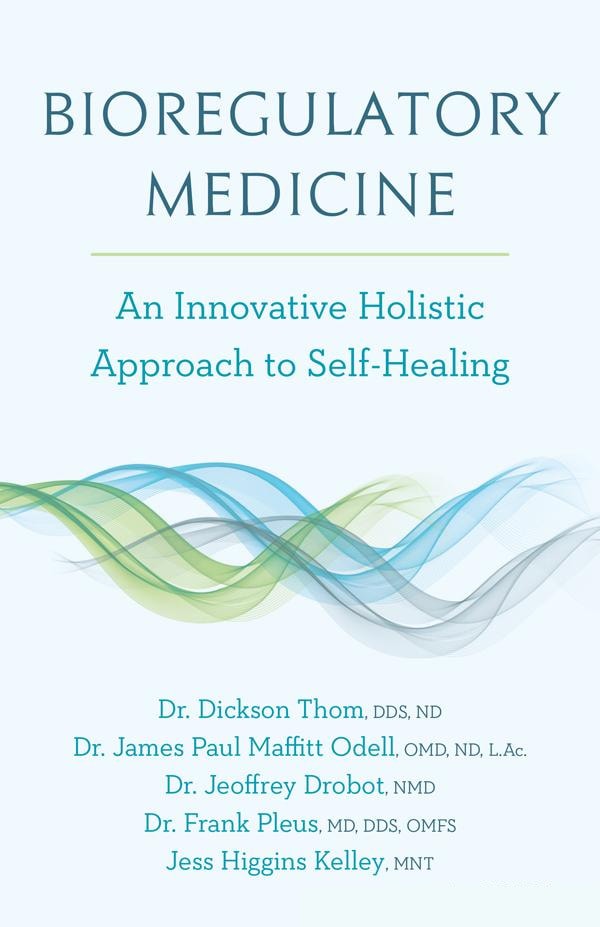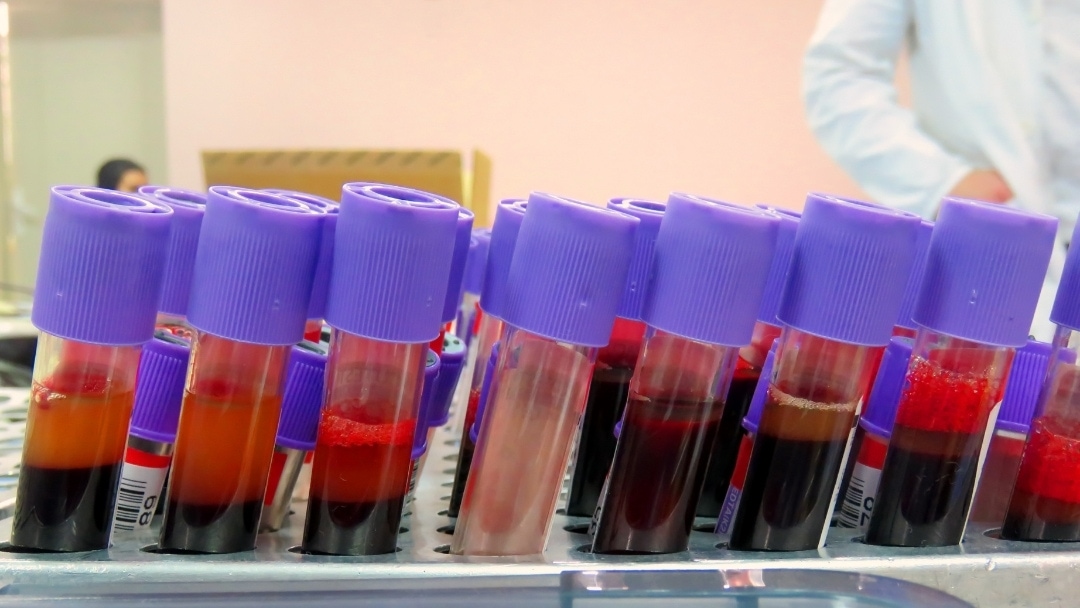Allopathic Medicine vs. Bioregulatory Medicine
Throughout the book, examples are given of the differences between what’s called allopathic medicine and what is known as bioregulatory medicine. Here’s what you should know.
Allopathic Medicine
Allopathic medicine is what is typically practiced in mainstream, Western medical practices. It’s the kind of medicine for which you go to a hospital or your pediatrician or a cardiologist. It’s typically covered by health insurance companies. “Allopathic treatments are intended to replace, remove, destroy, block, suppress, or inhibit biological function.”
Allopathic medicine consists of specialists who don’t look at the body in a holistic manner. For example, a cardiologist may not fully understand the implications that the medicine he or she provides has on the kidneys, lungs, brain and other organs and systems. And the same can be said of most allopathic specialists lacking understanding of their specialty on the whole body.
Because it is not focused on prevention, mainstream medicine typically ignores red flags and says “just wait until it’s broken.” An example of this is people whose fasting glucose indicates pre-diabetes. It’s common for this condition to be ignored by a mainstream doctor until the person develops full-blown diabetes because at that point, mainstream medicine can offer pharmaceutical products such as insulin and metformin but can’t offer much before that point.
Allopathic medicine does not typically consider the effect of the body on the brain or of the brain on the body; there is a separation of body and mind. The same goes for dental health. For some reason, mainstream medicine does not take into account the health of the mouth and how it affects the rest of the body.
Bioregulatory Medicine
Bioregulatory medicine, also known as biomed, supports and stimulates the body’s innate, natural capacity to heal. The many types of treatment modalities use an integrative, systems-based approach that treats each person in a bioindividual way.
These modalties often look at the total load of root causes of chronic health conditions because “the goal is to identify and remove these obstacles to cure.” These root causes may include any or all of the following:
- Nutritional deficiencies
- Gut dysbiosis
- Immune dysregulation
- Inflammation
- Toxicity
- Physical, mental and emotional trauma
- Structural issues
With bioregulatory medicine, there is an integration of body, mind and spirit. Neurodevelopmental disorders such as autism and ADHD are understood to be whole-body conditions wherein the health – or lack of it – of the body affects the health of the brain.
In addition, the health of the mouth is considered in this type of medicine. For instance, an infection, cavity or root canal can affect the kidneys, heart, breasts, or other organ depending on the particular tooth meridian. Dysfunction within the mouth, such as a tongue tie or high palate, can have wide-ranging implications on overall body health such as feeding problems, Obstructive Sleep Apnea, ADHD, speech and language problems and more.
Symptoms
In mainstream medicine, symptoms are typically suppressed with pharmaceutical medications or perhaps with surgery. What is not well understood, though, is that this symptom suppression can drive the disease process deeper and create deeper dysfunction. A typical example of this is how a child who uses coritsone cream for eczema will often develop asthma. Bioregulatory medicine sees that “symptoms are simply the body’s way of expressing dysregulation.”
Look at fever as an example. In mainstream medicine, fevers are to be suppressed with medications such as Tylenol. In bioregulatory medicine, however, a fever is understood to be the body’s way of fighting off a pathogenic invader and is often encouraged as way to have the body’s immune system train itself successfully against a new pathogen. Giving a fever reducer may have the consequence of telling the body that its immune functions aren’t necesseary.
Testing
Because allopathy is typically practiced by specialists, it doesn’t provide the type of comprehensive preventive screening required to properly assess complex chronic and degenerative conditions that cross multiple organ systems such as the neurological system, the gastrointestinal system, the immune system, or the effects of hormones.
Bioregulatory medicine also uses blood panels, but typically will look at blood markers that can point to root causes. In addition, there are whole hosts of other assessments such as heart-rate variability tests, digestive analyses, tongue analysis, electrodermal screening and so much more that can be used to tell if there is dysfunction or imbalance within the body.
Diet
Mainstream medical practitioners typically don’t receive training in the effect of diet on the health of the body. If nutrition is ever mentioned, it’s usually something along the lines of “eat a balanced diet” or “follow the USDA food pyramid”. Bioregulatory medicine looks at a person’s diet as a key lever for improving health. Changing to a healing diet can:
- Heal the gut and thereby improve autoimmune and neurological symptoms
- Improve symptoms such as allergies, constipation and other chronic symptoms by addressing food sensitivities and intolerances
- Stablize blood sugar
- Lower inflammation
Detoxification
Despite the preponderance of peer-reviewed medical research studies that document the harms of toxicity, very few mainstream health practitioners consider it in the occurrence of symptoms and diseases. A bioregulatory practitioner sees the removal of toxicity as another key lever to improve health: by correcting the logjam of toxicity, the flow and distribution of nutrients improves. Homotoxicology is a typical biomed method for reducing toxicity.
The issue of toxicity in “silver” fillings – which are actually half mercury – is a good example of the differences between mainstream dental practices and bioregulatory dentistry. A typical dentist follows the guidelines of the American Dental Association that state that once the amalgam is set in a tooth, mercury is “fixed” and isn’t harmful, yet the mercury is handled and labeled as toxic before and after it is used in a filling. A biological dentitst sees through this cognitive dissonance and understands that mercury in the mouth is extremely toxic to the health of the entire body.
Bioregulatory Medicine Treatment Modalities
There is a wide variety of biomed treatment modalities. Please note that one modality by itself may not be the silver bullet to improve health completely. Instead, the following approaches are examples of modalities that are often used in conjunction with each other and with specific therapies for more complex cases, especially for neurodevelopmental disorders.
- Traditional Chinese Medicine
- Acupuncture
- Ayurvedic medicine
- Naturopathic medicine
- Homeopathy
- Homotoxicology
- BioSET and NAET
- Hyperbaric Oxygen Therapy (HBOT)
- Color, sound and light therapies
- Reiki
- Chiropractic care
If you’re new to the world of biomed, this book will help answer your questions about what it is, what to expect and how it can help.
About the Authors
Dickson Thom DDS ND is one of the co-founders and medical directors of the American Center of Biological Medicine, has over forty years of experience as a clinician and over twenty years as a medical professor. He lectures extensively throughout North America and is the author of Coping with Food Intolerances and Unda Numbers: An Energetic Journey to Homeostasis and Wellness. Dr. Thom has been teaching doctors, students, and the lay public on proven medical principles and business skills for over thirty-five years.
James Paul Maffitt Odell OMD ND LAc is certified in acupuncture with the National Certification Commission for Acupuncture and Oriental Medicine. For over twenty-five years he has been a certified instructor with the American Organization of Bodywork Therapies of Asia. He is also a Certified Traditional Naturopath with the American Naturopathic Certification Board. For over fifteen years Dr. Odell was the education coordinator for the Bioregulatory Medicine Network which conducted conferences on the principles and practices of European biological regulatory medicine. He is currently the medical director of the Bioregulatory Medicine Institute. He is also a medical consultant for PDC Biological Health Group and conducts workshops on contact regulation thermography interpretation.
Jeoffrey Drobot NMD is one of the co-founders and medical directors at the American Center for Biological Medicine (ACBM) in Scottsdale, Arizona. He also sees patients at his Canadian clinic in Calgary, Alberta. A leading authority in the field of bioregulatory medicine, Dr. Drobot has decades of experiencing working with chronic and autoimmune disease treatments, detoxification, hormonal imbalance correction, and customized sports medicine and nutrition programs.
Frank Pleus MD DDS OMFS is a Swiss physician who has earned degrees in dentistry and medicine. He has been one of the key academic lecturers on bioregulatory medicine for the Bioregulatory Medicine Network at the Marion Institute in Marion, Massachusetts. For more than a decade, he has introduced the core precepts and practices of bioregulatory medicine at the annual spring meetings of the Network. As a European integrative medicine practitioner, Dr. Pleus firmly believes that maintaining health and healing means integrating all levels of human existence.
Jess Higgins Kelley MNT is a consultant, educator and writer. She is the founder and CEO of Remission Nutrition, a global oncology nutrition consulting enterprise that supports clients in the prevention and management of cancer. After teaching for almost ten years, Jess also created and founded the Oncology Nutrition Institute which trains professionals in the latest advances in complimentary oncology nutrition. With an undergraduate degree in journalism, Jess has written health and nutrition pieces for newspapers and magazines in addition to this book.
Still Looking for Answers?
Visit the Epidemic Answers Practitioner Directory to find a practitioner near you.
Join us inside our online membership community for parents, Healing Together, where you’ll find even more healing resources, expert guidance, and a community to support you every step of your child’s healing journey.
More To Explore
Join our email list to get free healing resources delivered right to your inbox.
Join our community

This information is not a substitute for medical advice, treatment, diagnosis, or consultation with a medical professional. It is intended for general informational purposes only and should not be relied on to make determinations related to treatment of a medical condition. Epidemic Answers has not verified and does not guarantee the accuracy of the information provided in this document.
© Copyright 2013-2024 Epidemic Answers. All rights reserved. Privacy Policy | Terms of Service | Disclaimer | Website by fuseStarter




